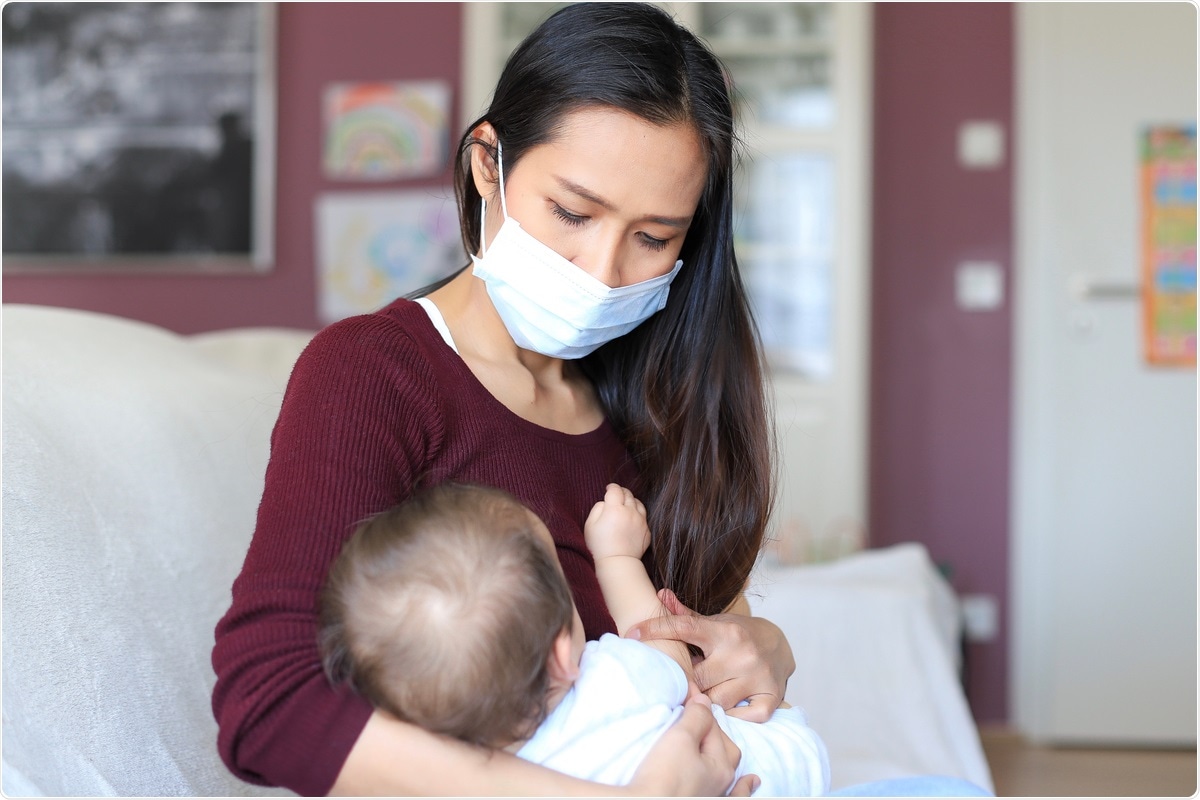Home » Health News »
Researchers detect vaccine-induced SARS-CoV-2 antibodies in breast milk
With the continuing spread of the coronavirus disease 2019 (COVID-19) pandemic caused by the severe acute respiratory syndrome coronavirus 2 (SARS-CoV-2), researchers have worked frantically to bring out effective and safe vaccines.
A new paper released on the medRxiv* preprint server describes, for the first time, the detection of antibodies to the virus in human breast milk following the vaccination of lactating mothers. This could guide patients, their healthcare providers, and public health policymakers alike as to the deployment of the vaccines in pregnant and lactating mothers.

With over 115 million cases of COVID-19 and approximately 2.5 million deaths reported worldwide, the task of global vaccination remains crucial.
Notably, clinical trials excluded pregnant and lactating mothers from vaccination, leaving little evidence to guide clinical decision-making. However, this is an important area since these vaccines may potentially reduce severe disease and mortality due to COVID-19.
The study aimed to explore the presence of specific antibodies to the virus in breast milk, the temporal profile of their appearance, and the subclasses of immunoglobulins (Igs) present.
Earlier studies have shown that SARS-CoV-2 infection leads to the presence of specific IgA antibodies in breast milk. The finding of these antibodies in pre-pandemic samples led to the suggestion that breast milk IgA has a versatile binding pocket that allows binding by multiple viruses besides SARS-CoV-2.
On the other hand, IgG antibodies are more specific for this virus.
The researchers designed a prospective model that tested the effect of vaccination of lactating mothers. The participants were all breastfeeding mothers who wished to take both doses of the Pfizer-BioNTech or Moderna vaccine between December 2020 and January 2021. Both these are messenger ribonucleic acid (mRNA) vaccines encoding the viral spike antigen.
The researchers examined breast milk samples collected before vaccination and then at 11 timepoints up to 14 days after the second dose of the vaccine. They found that the baseline or pre-vaccination samples did not have significant levels of antibodies to the virus.
They also found that both IgG and IgA antibodies specific to the SARS-CoV-2 spike antigen were found at markedly higher levels from day seven after the prime dose of either vaccine.
The IgG antibodies dominated the humoral immune response. Both antibody types showed a broad drop in antibody titer between the prime and booster dose, but then registered a steep rise once the booster dose was administered.
The inter-individual differences in the antibody titers and the temporal profile of the antibody response were marked. Conversely, both vaccines led to similar antibody responses.
What are the implications?
The findings indicate that both the Pfizer-BioNTech and Moderna vaccines produce a significant increase in IgA and IgG antibodies to the SARS-CoV-2 spike protein, beginning from the seventh-day post-prime.
In the early trials of these vaccines, antibodies to the spike protein were detected at about day 15-21. Again, the dominant IgG response seen in the breast milk of these women does not agree with the earlier reports of an IgA response following SARS-CoV-2 infection.
This discrepancy could be because of the intramuscular route of inoculation used during the current vaccination round, whereas natural infection occurs by the intranasal route, which stimulates local or mucosal immunity characterized by IgA antibodies.
The presence of a breast milk antibody response to the SARS-CoV-2 vaccine is being reported for the first time in this study. The durability of antibody presence in breast milk needs to be determined.
More importantly, the contribution of these antibodies to infant immunity must be examined in future studies. The researchers aim to explore the subtypes of IgG antibodies in breast milk, as well as the IgM levels. Neutralizing activity against the spike antigen is a separate area that has not been assayed in the present study.
We provide the first evidence that mothers vaccinated against SARS-CoV-2 produce antibodies to this virus in breast milk that may be protective for infants.”
*Important Notice
medRxiv publishes preliminary scientific reports that are not peer-reviewed and, therefore, should not be regarded as conclusive, guide clinical practice/health-related behavior, or treated as established information.
- Baird, J. K. et al. (2021). SARS-CoV-2 antibodies detected in human breast milk postvaccination. medRxiv preprint. doi: https://doi.org/10.1101/2021.02.23.21252328, https://www.medrxiv.org/content/10.1101/2021.02.23.21252328v1
Posted in: Medical Science News | Medical Research News | Miscellaneous News | Disease/Infection News | Healthcare News
Tags: Antibodies, Antibody, Antigen, Breast Milk, Breastfeeding, Coronavirus, Coronavirus Disease COVID-19, Healthcare, Immune Response, Mortality, Pandemic, Protein, Public Health, Respiratory, Ribonucleic Acid, SARS, SARS-CoV-2, Severe Acute Respiratory, Severe Acute Respiratory Syndrome, Spike Protein, Syndrome, Vaccine, Virus

Written by
Dr. Liji Thomas
Dr. Liji Thomas is an OB-GYN, who graduated from the Government Medical College, University of Calicut, Kerala, in 2001. Liji practiced as a full-time consultant in obstetrics/gynecology in a private hospital for a few years following her graduation. She has counseled hundreds of patients facing issues from pregnancy-related problems and infertility, and has been in charge of over 2,000 deliveries, striving always to achieve a normal delivery rather than operative.
Source: Read Full Article


